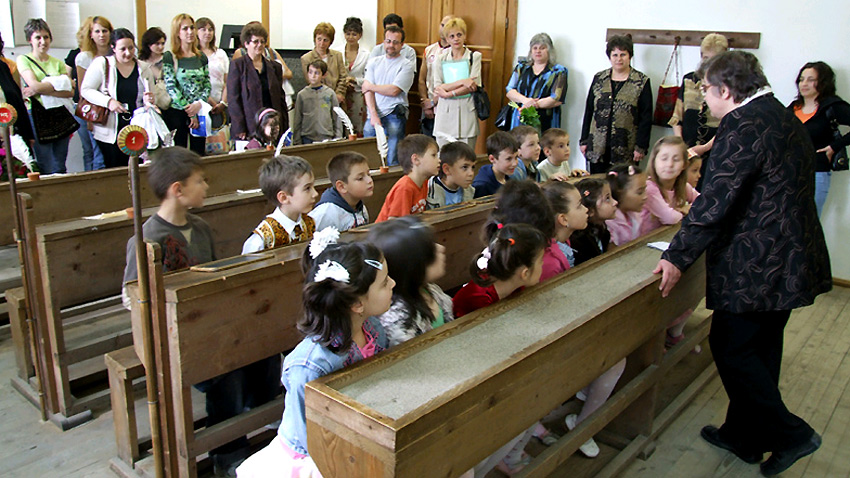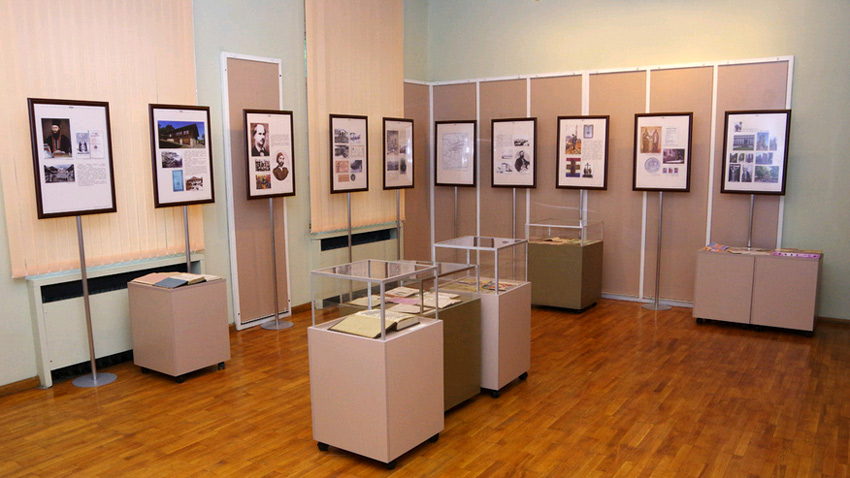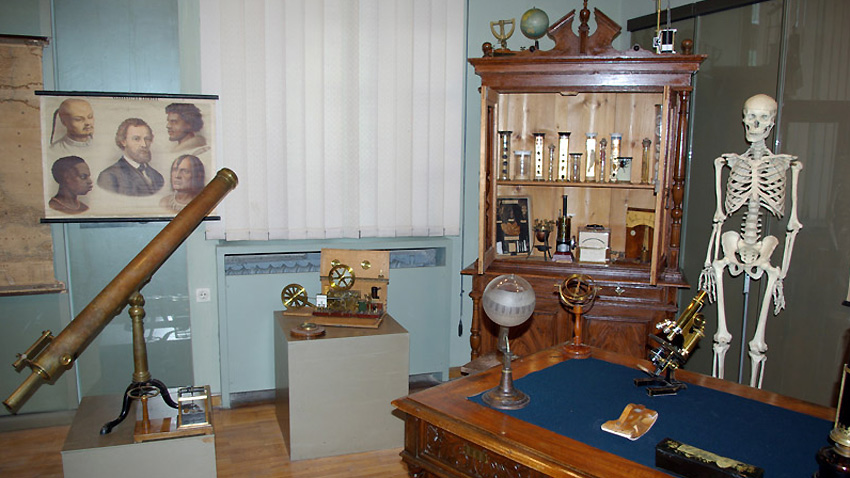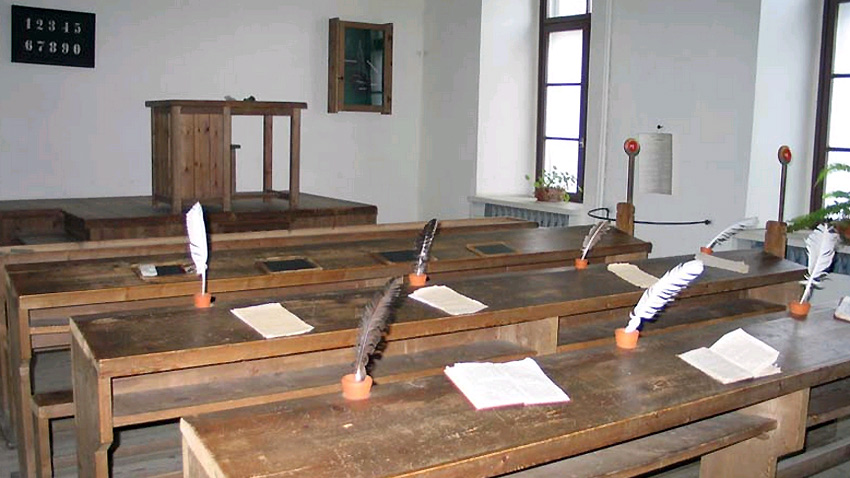 6
6
By a tradition, the whole of May is a month dedicated to “letters” at Bulgarian schools. On the eve of 24 May – day of Bulgarian education and culture and of the Slavic alphabet – young children across the country proudly demonstrated how much they have improved their reading and writing skills throughout the year. To make the day even more festive, many school headmasters chose to have their diploma award ceremonies at the Museum of Education in Gabrovo. It is now something of a tradition to have groups of schoolchildren and teachers coming to the museum in Gabrovo from Rousse, Pleven, Bourgas, Sofia, Jebel and other towns.

The Museum of Education in Gabrovo was set up in 1974 and is now a Ministry of Education institute of national importance.
“There are many museums in the world that focus on education but they usually mount temporary or thematic exhibitions. We are the only functioning museum dedicated entirely to education, there is no other,” says Rumena Hristova, chief curator at the museum in Gabrovo.

“The first modern Bulgarian school opened here in 1835, on the initiative of Vassil Aprilov and Nikolai Palauzov – a school, where for the first time, children were taught only in the spoken Bulgarian language. That is the reason why a museum was founded in Gabrovo dedicated to the history of education in Bulgaria, with a standing exposition that spans the period from the 10th century down to our day. The idea to have such a museum emerged right after the country’s liberation from Ottoman domination (1878). It was founded in 1905 in Sofia, the initiative for this belonging to Prof. Dr. Ivan Shishmanov. Many of the pieces he himself collected are now part of the museum’s funds. We have around 175,000 documents, photographs, pieces, periodicals connected with education and teaching. Here we have valuable publications from the library of the Gabrovo school dating back to 1835. We also have Vassil Aprilov’s personal collection of books - in his will he says that his books must remain in the town where he and his ancestors were born – Gabrovo. The oldest book among them is Homer’s Odyssey and it is from 1551. It is bilingual with parallel texts in Greek and in Latin. The other collection the museum is very proud of is the rich collection of text books from the period of the National Revival before the liberation in 1878. It includes original diplomas, certificates, school aids, flags, seals.”

To keep abreast of the times, the museum in Gabrovo is in contact with the schools of the Bulgarian communities in Madrid, Cyprus and elsewhere. It is for them that a special exhibition was mounted, dedicated to Bulgarians’ interest in education during the National Revival. A replica of a room in a mutual-instruction school is the exhibit that attracts the greatest number of visitors to the museum.

“In those days students had the greatest respect for their teacher and for the school" Rumena Hristova continues." At the time of the National Revival, when children entered class they would be checked whether they were clean, well dressed and had their hair combed. During the period of the National Revival, teachers, priests and mayors were the people who commanded the greatest amount of respect, now times have changed and things are different. Back then, there would be children of different age sitting at the desks. There weren’t many people trained to be teachers then, so the mutual-instruction method was applied – the older pupils would help the teacher. In class, there were incentives but also punishments that are unthinkable in our day. The good students would be given signs that read: obedient, attentive, wise. But there was another kind of signs that were black with words like: lazy, dirty, naughty. The children would have to wear these signs around their necks and would have to go home with them. They would have to walk along crowded streets and anyone would be able to read the sign. When they went home for lunch, the younger children would be accompanied by older students who would make sure they behaved in public.”

English version: Milena Daynova
Photos: nmogabrovo.comThe ninth edition of the initiative Poetry in the Metro opens today and lasts until 23 December. The project was initiated by the Polish Cultural Institute in Sofia. It includes poems by 20 European writers. They will be displayed on panels..
Awakener/enlightener - a person who, through his actions, ideas or creative work, awakens the spirit of the people, preserves and spreads national identity, culture and education. In Bulgarian history, this term is most often associated with the period of..
For the twenty-third year, the Bansko Film Fest team will take the audience to some of the most extreme corners of the world with 75 films from 39 countries . ''All of them are premieres, and for some of them, the screenings in Bansko will be..

+359 2 9336 661
